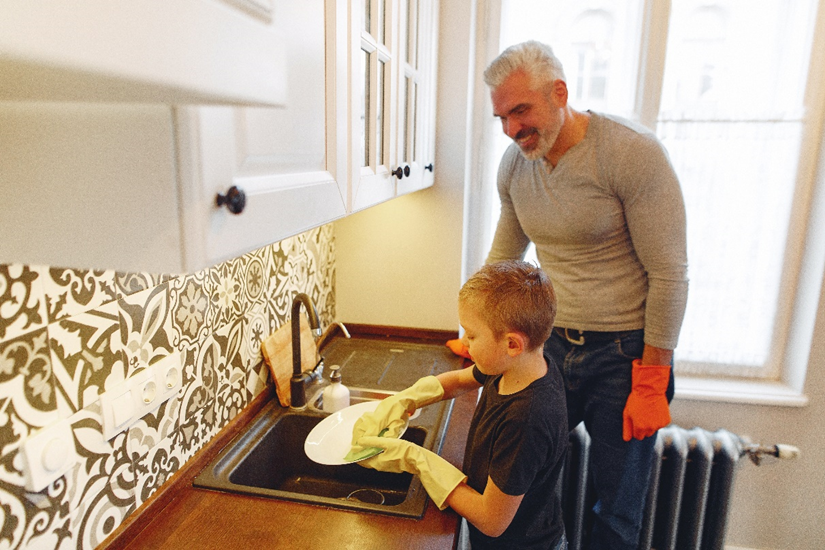Financial literacy is a critical skill that parents must instill in their children, as it’s fundamental to navigating the complexities of modern life. But which approach is suitable for your children? Parents can teach their children about money by providing them with pocket money, either in exchange for chores or without any strings attached. Some parents opt not to provide any pocket money at all. What option is the most suitable for your family? Let’s review.

Pocket Money in Exchange for Chores
Main benefits:
- Teaches children the value of hard work and earning money
- Encourages children to take on more responsibility
- Helps children develop time-management skills
Providing children with pocket money is a popular approach among many parents. In Germany, 89% of parents give their children a small allowance on a monthly (53%) or weekly (36%) basis.
Most parents don’t ask their children to work for it, but exchanging it for chores helps teach children the value of hard work and earning money. It encourages them to take on more responsibility around the house and helps them develop time-management skills.
When children earn pocket money for completing tasks, they learn that money is a result of hard work, and this can instill a strong work ethic that can benefit them later in life.

Pocket Money with No Chores Required
Main benefits:
- Doesn’t set unrealistic expectations about chores
- Assists in developing budgeting skills in children
- Motivates children to make independent financial decisions
Some parents reject the idea of paying their children for doing chores, believing that kids should contribute to the household regardless of reward.
This is because they want their children to understand that, as adults, we don’t get paid for doing household chores and that it sets unrealistic expectations for later in life. Children should grow up knowing that they need to ‘pull their weight’ wherever they live and do their part in maintaining the house.
While this approach doesn’t teach children that money has to be earned, it does improve money management skills and contributes to financial education. Having a set amount of money motivates children to think about their expenses wisely and even set money aside or invest it.

No Pocket Money Whatsoever
Main benefits:
- Encourages children to find creative ways to earn money
- Teaches children to be responsible with the resources available to them
- Helps children develop a strong work ethic
Some parents choose not to give any pocket money to their children at all. While this may seem harsh, it can effectively teach children about responsibility and the value of hard work.
Without the option of pocket money, children are encouraged to find creative ways to earn money and become more resourceful. They learn to be responsible with their available resources and develop a strong work ethic that can benefit them later in life.
Send this article to a parent you feel can benefit from this.